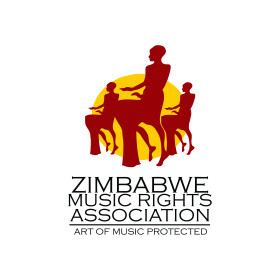
THE last few days have been quite eventful, with tensions running high between musicians and the Zimbabwe Music Rights Association (Zimura) over what artistes describe as excessive charges for playing other musicians’ songs.
For a long time, the disputes between musicians and Zimura were relatively subdued.
However, the situation came to a head on March 31, when both sides publicly erupted.
Artistes have been vocal in their complaints, asserting that they have not been receiving royalties from Zimura, which collects fees on their behalf from radio stations and other platforms that play their music.
Additionally, many allege that Zimura has been bullying them into compliance.
In a Press release dated March 31, 2025, the Zimbabwe Musicians Union (ZIMU), together with the broader artistic community, expressed gratitude to the National Arts Council of Zimbabwe (NACZ) for its timely intervention in the US$150 tariff dispute.
“The suspension of this punitive fee and the promotion of dialogue among stakeholders by NACZ has provided much-needed relief to musicians, venue owners and other industry players who were burdened by Zimura’s unilateral policies,” the statement read.
The musicians continued, emphasising the broader implications of the dispute: “However, this issue is indicative of deeper systemic problems within Zimura, problems that have persisted for its 42-year history. The organisation’s legacy of mismanagement, intimidation and unethical practices has impoverished artistes, eroded trust and harmed Zimbabwe’s cultural heritage.”
- Hwange singer eager to connect citizens through music
- Time we do right with our musicians
- Zim artistes don’t value their work: Zimura
- Plot to disrupt Zimura hits brick wall
Keep Reading
While NACZ’s intervention was seen as a positive step, the musicians called for a thorough investigation into the root causes of the ongoing crisis: “It is essential to address these systemic issues and put an end to Zimura’s impunity.”
Zimura, in one of its Press releases, made a controversial claim, stating that it had “no legal requirement to register with NACZ”, arguing that no legal provision mandates such registration.
To douse the flames, NACZ intervened, directing Zimura to regularise its registration in accordance with the National Arts Council of Zimbabwe Act [Chapter 25:07] and Statutory Instrument 87 of 2006.
NACZ also suspended the US$150 tariff “immediately pending the conclusion of registration, dialogue and negotiation processes.”
Clearly, somebody needed to rein in Zimura’s unchecked power.
There’s an urgent need for oversight over the organisation, as questions arise about lack of financial transparency.
Artistes have long been kept in the dark about how much revenue Zimura generates, raising suspicions that some individuals may have turned it into cash cow.
Copyright holders — many of whom are widows or orphaned children of music legends — have previously complained at NACZ meetings that cover bands were profiting significantly from the intellectual property of deceased musicians, with little to no benefit to rights holders.
How much, therefore, have artistes truly received from the revenue Zimura has collected on their behalf?
Last month, renowned jazz musician Ernest Tanga Wekwa Sando publicly declared that anyone wishing to perform his music must seek his direct permission, rather than relying on Zimura.
Music critic Blessing Vava weighed in, saying: “Zimura has succeeded in dividing musicians and evading accountability. The organisation operates like a secretive mafia or cult. It’s high time stakeholders took action and demand an audit of Zimura’s operations. The parent ministry should set up a commission of inquiry to investigate how Zimura has been running.”
Clearly, time has come to hold Zimura accountable for its actions.
The music community deserves answers and it’s crucial that the institution’s operations be thoroughly scrutinised for the sake of Zimbabwe’s artistes and cultural legacy.






